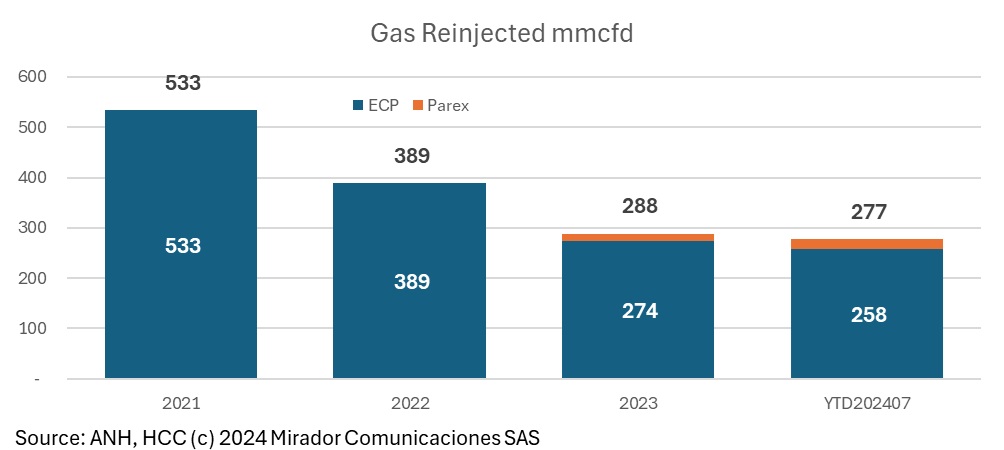The National Authority of Environmental Licenses (ANLA) has granted an environmental license for the exploratory offshore oil drilling project in the Col-1 Block, located in Colombia’s Caribbean.

In the face of a potential natural gas deficit projected for 2025, Colombia’s state-owned oil company, Ecopetrol (NYSE: EC), announced the availability of additional natural gas for the short term.
TPL Gas, a subsidiary of TPL Energía, started delivering imported natural gas to Colombia’s domestic market, addressing concerns over potential gas shortages.
The Ministry of Mines and Energy (MinMinas) recently reported that local gas production is more than sufficient to meet the country’s demand.
For the first time in 45 years, imported natural gas will be used in Colombia to meet domestic demand across households, vehicles, and commercial sectors. This historic shift highlights growing concerns about the country’s ability to sustain its energy needs through local production.
The Colombian Ministry of Mines and Energy (MinEnergia) is finalizing a crucial decree to enable Ecopetrol and other players to import natural gas and advance offshore production capabilities.
Recent updates have surfaced regarding the memorandum of understanding (MoU) for the development of a liquefied natural gas (LNG) storage facility at Zona Franca Brisa, in partnership with South Korea’s Kogas Tech.
The Sociedad Portuaria El Callao (SPEC LNG), Colombia’s only liquefied natural gas (LNG) regasification plant, has played a vital role in ensuring energy security since its inception in 2016.
A recent survey by YanHaas and the Hernán Echavarría Olózaga Institute of Political Science (ICP) reveals overwhelming opposition among Colombians to the idea of importing gas from Venezuela—a proposal previously floated by Ecopetrol’s (NYSE: EC) President, Ricardo Roa.
Colombia faces a growing challenge in balancing energy demand and supply, with imported gas becoming an increasingly necessary yet costly solution.